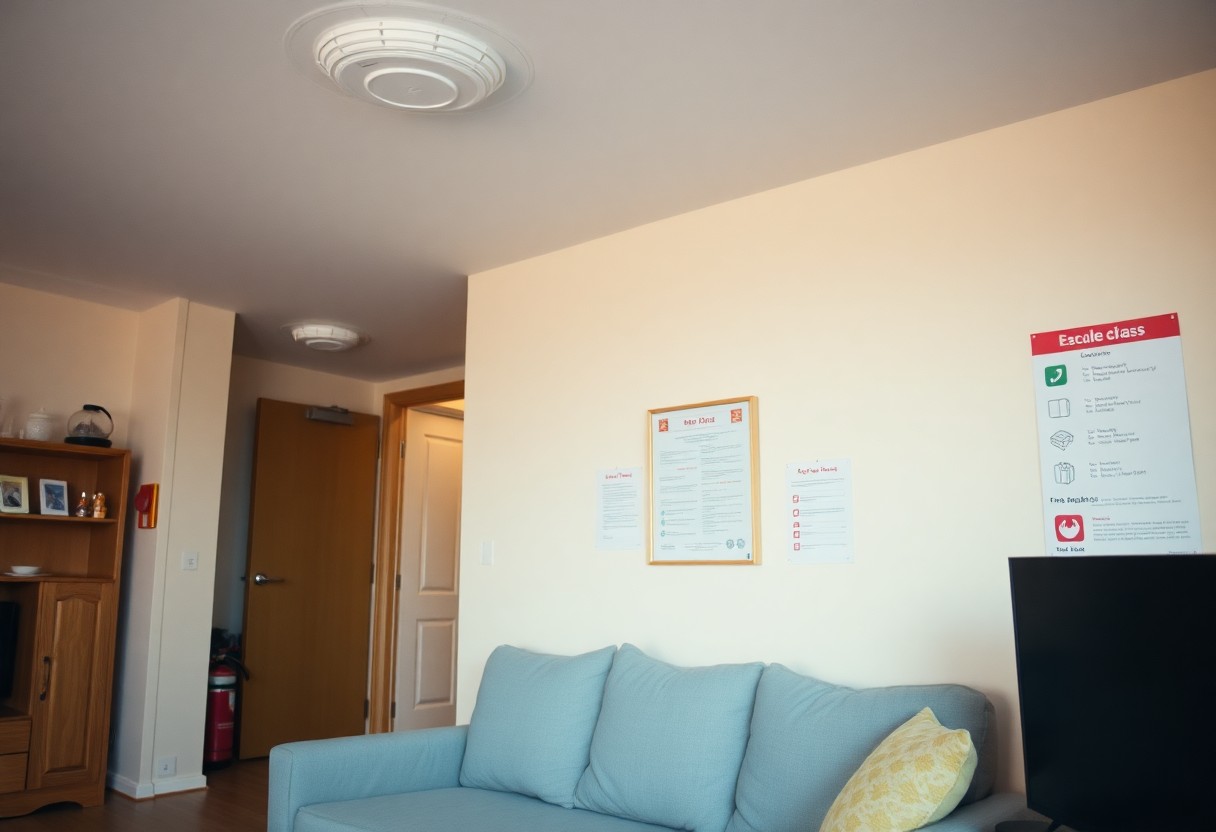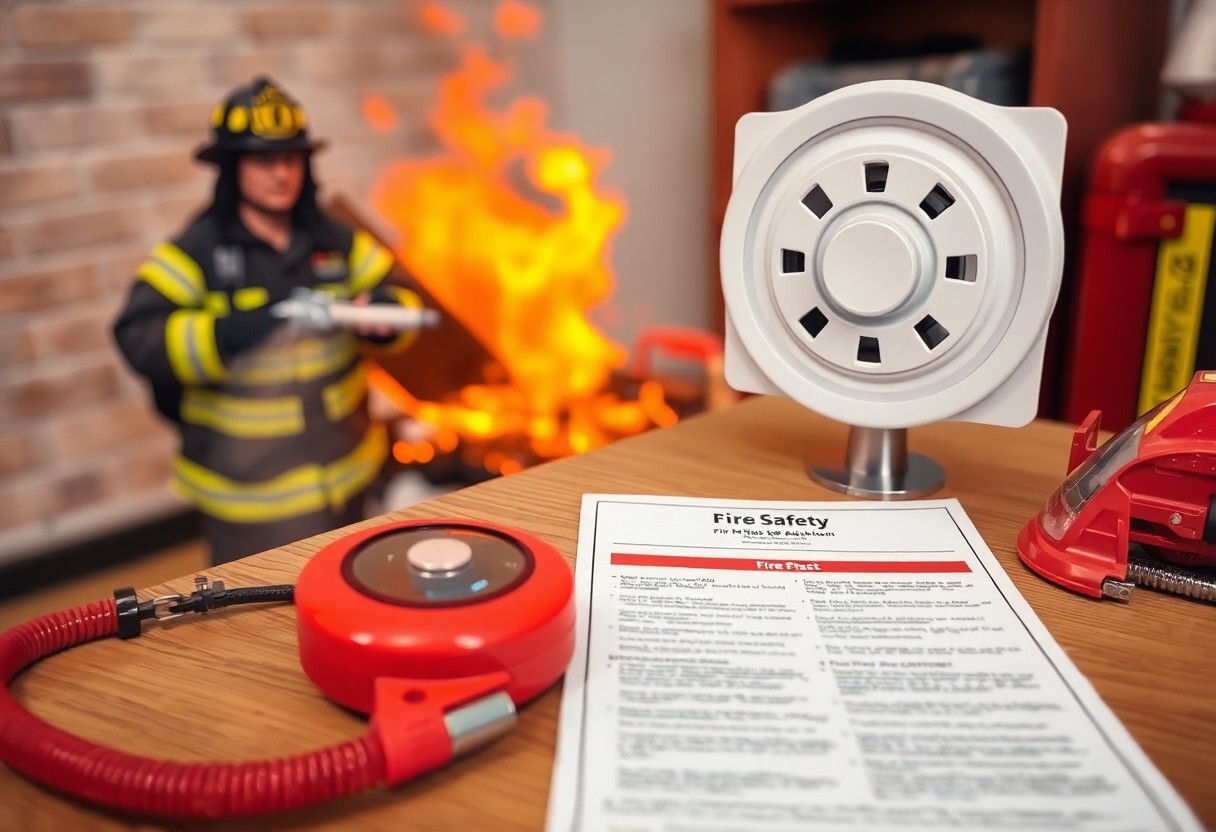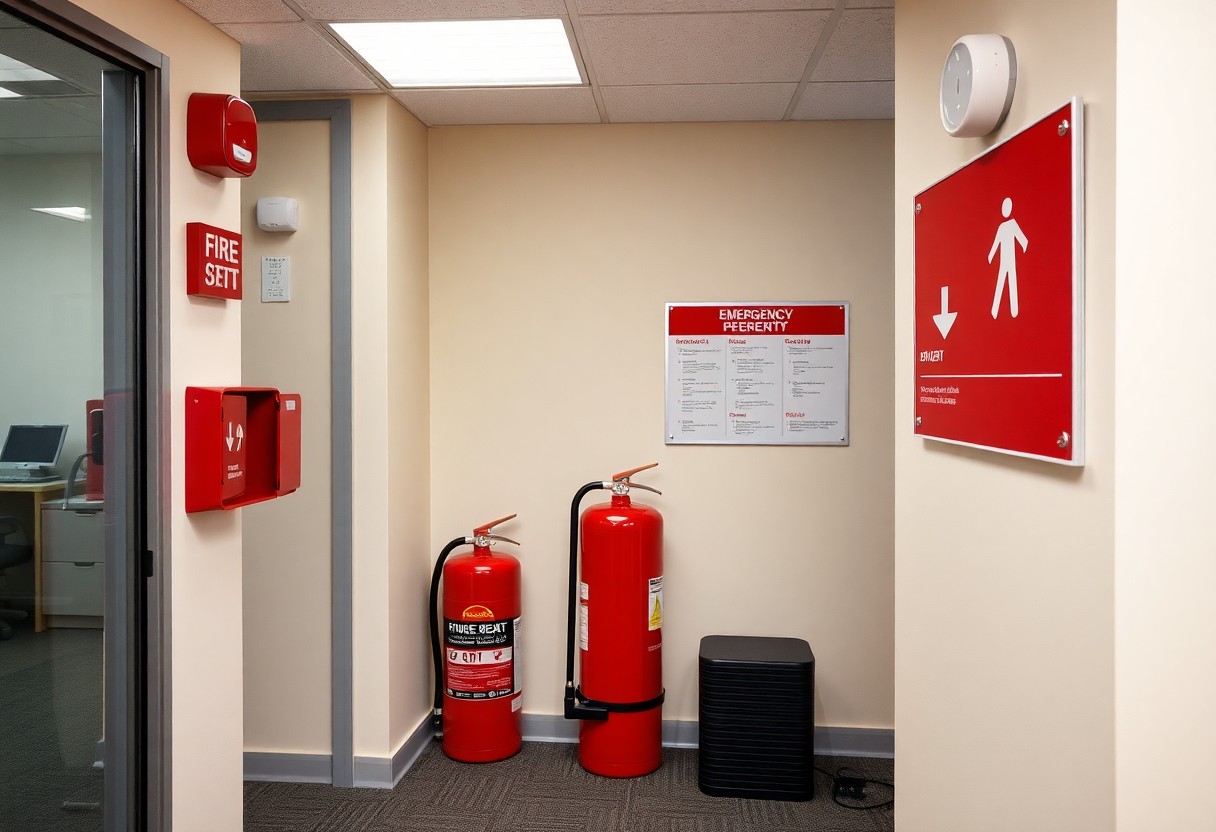Just because you rent your home doesn’t mean you can overlook fire safety. It’s important to take proactive steps to protect yourself and your belongings from the devastating effects of fire. In this blog post, you will find crucial tips tailored for renters, equipping you with the knowledge and strategies to ensure your living space remains safe and secure. From understanding fire alarms to creating an evacuation plan, you can take charge of your fire safety today.
Understanding Fire Hazards
To effectively keep your living space safe, it is imperative to understand the various fire hazards that can arise in rental properties. Familiarizing yourself with these risks allows you to take preventive measures and stay alert to potential threats in your environment, ensuring the safety and well-being of you and your loved ones.
Common Causes of Fire in Rental Properties
About 75% of all residential fires are attributed to common household activities. Kitchen accidents, such as unattended cooking, faulty wiring, and heating equipment malfunctions, rank high on the list of fire causes. Additionally, improper use of electrical appliances and the presence of flammable materials can further increase the risk in your rental space.
Identifying Potential Risks in Your Living Space
Behind every fire hazard lies an opportunity to mitigate risk. By conducting a thorough assessment of your living space, you can spot potential dangers that may put you at risk. Regularly checking smoke detectors, ensuring proper ventilation, and keeping an eye on electrical installations can prevent fires from becoming catastrophic incidents.
Another effective strategy to identify potential risks involves creating a fire safety checklist for your home. Examine your kitchen for flammable materials near heat sources, assess the condition of electrical cords and outlets, and inspect heating units for blockages. Additionally, be mindful of clutter that can obstruct escape routes and limit access to fire extinguishers. This proactive approach empowers you to ensure your living space remains as safe as possible, eliminating chances of fire hazards taking hold.
Fire Prevention Strategies
While living in a rental property, implementing fire prevention strategies is imperative to safeguard your living space. Regularly check smoke detectors, keep flammable materials away from heat sources, and establish an escape plan with your housemates. Additionally, always adhere to your landlord’s fire safety protocols and ensure that common areas are not obstructed, allowing for easy exit in case of an emergency.
Safe Cooking Practices
By following safe cooking practices, you can significantly reduce the risk of kitchen fires. Always stay in the kitchen while cooking, use a timer to avoid overcooking, and keep oven mitts, towels, and other flammable items away from the stovetop. If a fire does occur, never throw water on it; instead, use a fire extinguisher or lid to smother the flames.
Electrical Safety Tips
The importance of electrical safety in your rental cannot be overstated. Regularly inspect your electrical cords for fraying, avoid overloading outlets, and use power strips wisely. It’s also imperative to never use extension cords as permanent wiring and to unplug appliances when not in use.
- Check circuit breakers periodically and report any issues to your landlord.
- Only use appliances that are certified for safety.
- Keep electrical panels accessible and free from obstructions.
Assume that faulty wiring or overloaded circuits can lead to fires.
Hence, taking proactive steps regarding electrical safety can protect both you and your belongings. Be diligent in monitoring your electrical appliances and never ignore warning signs like flickering lights or unusual sounds.
- Use surge protectors for sensitive electronics.
- Always follow manufacturer instructions when using appliances.
- Seek professional help for any electrical repairs or concerns.
Assume that a small issue can lead to larger risks if left unaddressed.
Importance of Smoke Alarms
There’s no denying that smoke alarms are a vital safety feature in any living space. They serve as an early warning system, detecting smoke before it has a chance to become a dangerous fire. By ensuring your home is equipped with functional smoke alarms, you significantly reduce the risk of injury or loss in case of a fire. It’s a simple yet powerful tool that can save lives and property, making it important for every renter to prioritize their installation and maintenance.
Installing Smoke Detectors
For renters, installing smoke detectors is a straightforward task that can greatly enhance your fire safety. It’s important to ensure that they are placed in key areas, such as sleeping zones and hallways, where alerts will be most effective. If your rental does not have smoke detectors, consult your landlord about the possibility of installing them, or seek permission to do so to keep your living space safe.
Regular Maintenance and Testing
Smoke alarms require regular maintenance and testing to guarantee they function correctly. You should test your smoke alarms at least once a month, using the test button to ensure it beeps and functions as intended. In addition to testing, you should also change the batteries at least once a year or immediately if the alarm emits a chirping sound. Regularly cleaning your smoke alarms by dusting or vacuuming can prevent false alarms and enhance their effectiveness, keeping you and your home safer.
To ensure that your smoke alarms remain in optimal working condition, establish a routine for regular maintenance. This includes not only testing the devices and replacing batteries but also checking the expiration date of the alarms themselves. Smoke alarms generally need to be replaced every 10 years. Mark your calendar for testing and maintenance activities so that they become a regular part of your safety routine, allowing you to enjoy peace of mind in your living space.
Creating an Emergency Plan
All renters should establish a fire emergency plan to enhance their safety and ensure quick action in the event of a fire. This plan should outline designated meeting points outside the building, specify roles for roommates, and include contact information for local emergency services. Regularly reviewing and practicing the plan together will help everyone feel prepared, reducing panic and confusion during an actual emergency.
Escape Routes and Exits
After identifying all escape routes and exits in your living space, map out a clear path to safety. Make sure you and your housemates are familiar with multiple escape options in case one becomes blocked. Practice your exit strategies regularly to ensure you can evacuate quickly and efficiently if a fire occurs.
Communication Strategies with Housemates
To enhance your fire safety plan, establish effective communication strategies with your housemates. Discuss and assign specific roles during an emergency, such as who will alert the fire department or grab vital items like keys or phones. Make sure everyone knows how to reach each other and practice using a signal device, like a whistle or flashlight, to coordinate in case of smoke or chaos.
Housemates should continuously engage in open discussions about fire safety, including any changes in routines or responsibilities. Conducting regular drills and check-ins can solidify your emergency plan and help each person feel more confident about their role. The better you engage with one another on this topic, the more effectively your household can respond during an actual emergency.
Fire Extinguishers
After ensuring your living space is equipped with smoke alarms, consider adding a fire extinguisher to enhance your fire safety measures. Having this first line of defense can help you manage small fires before they escalate, providing you with an opportunity to protect your home and yourself.
Choosing the Right Fire Extinguisher
Along with understanding the importance of fire extinguishers, you must choose the appropriate type for your needs. There are different classes of extinguishers designed for various types of fires, including those caused by flammable liquids, electrical equipment, or ordinary combustibles. Assess your living space to select the most suitable option.
Proper Usage and Maintenance
With an extinguisher in your home, it’s important to know how to use and maintain it correctly. Familiarize yourself with the operating instructions, ensuring you can act quickly should the need arise. Regularly check the pressure gauge and inspect the unit for any damage, replacing it as necessary for optimal performance.
Further, you should periodically practice operating your fire extinguisher. Familiarize yourself with the PASS technique: Pull, Aim, Squeeze, and Sweep. Make sure your extinguisher is easily accessible, and keep it in a designated area away from potential fire hazards. Check the manufacturer’s guidelines for expiration and servicing to ensure your extinguisher stays in perfect working condition.
Responsibilities of Renters and Landlords
Unlike homeowners, renters must navigate specific responsibilities regarding fire safety, which may vary depending on lease agreements. You are responsible for maintaining a safe living environment, which includes being aware of potential hazards and reporting issues to your landlord promptly. Meanwhile, landlords are obligated to provide a property that meets safety codes and regulations, ensuring that your home is equipped with functioning smoke detectors and fire exits. Understanding these mutual responsibilities can help promote a safer living space for everyone involved.
Understanding Your Lease Agreement
Around the start of your tenancy, it’s crucial to review your lease agreement thoroughly. This document outlines your obligations regarding fire safety equipment, maintenance, and protocols, along with the landlord’s responsibilities in ensuring your living space adheres to local fire safety regulations. By understanding your lease, you can ensure compliance with requirements and know how to act in case of emergencies or safety concerns.
Communicating with Your Landlord about Safety
Understanding the importance of open communication with your landlord is key to maintaining safety in your home. You should address any fire hazards, malfunctioning smoke detectors, or safety concerns as soon as they arise. Effective communication can help ensure that necessary repairs are made promptly, minimizing risks and creating a proactive approach to fire safety in your living space.
It is beneficial to document your communications with your landlord for tracking purposes. When reporting safety issues, be clear and descriptive about the problem, and follow up if needed. Establishing a good line of communication can lead to quicker resolutions and foster a safer environment for you and fellow tenants. Additionally, your willingness to engage in these discussions may encourage your landlord to prioritize safety measures in the building overall.
Conclusion
Ultimately, prioritizing fire safety in your rental home is crucial for protecting yourself and your belongings. By taking proactive steps such as installing smoke alarms, creating an escape plan, and understanding your local fire codes, you can significantly reduce the risk of fire hazards. Stay informed about the fire safety measures provided by your landlord and conduct regular maintenance checks. By being vigilant and prepared, you create a safer living environment for yourself and anyone sharing your space.


